Image
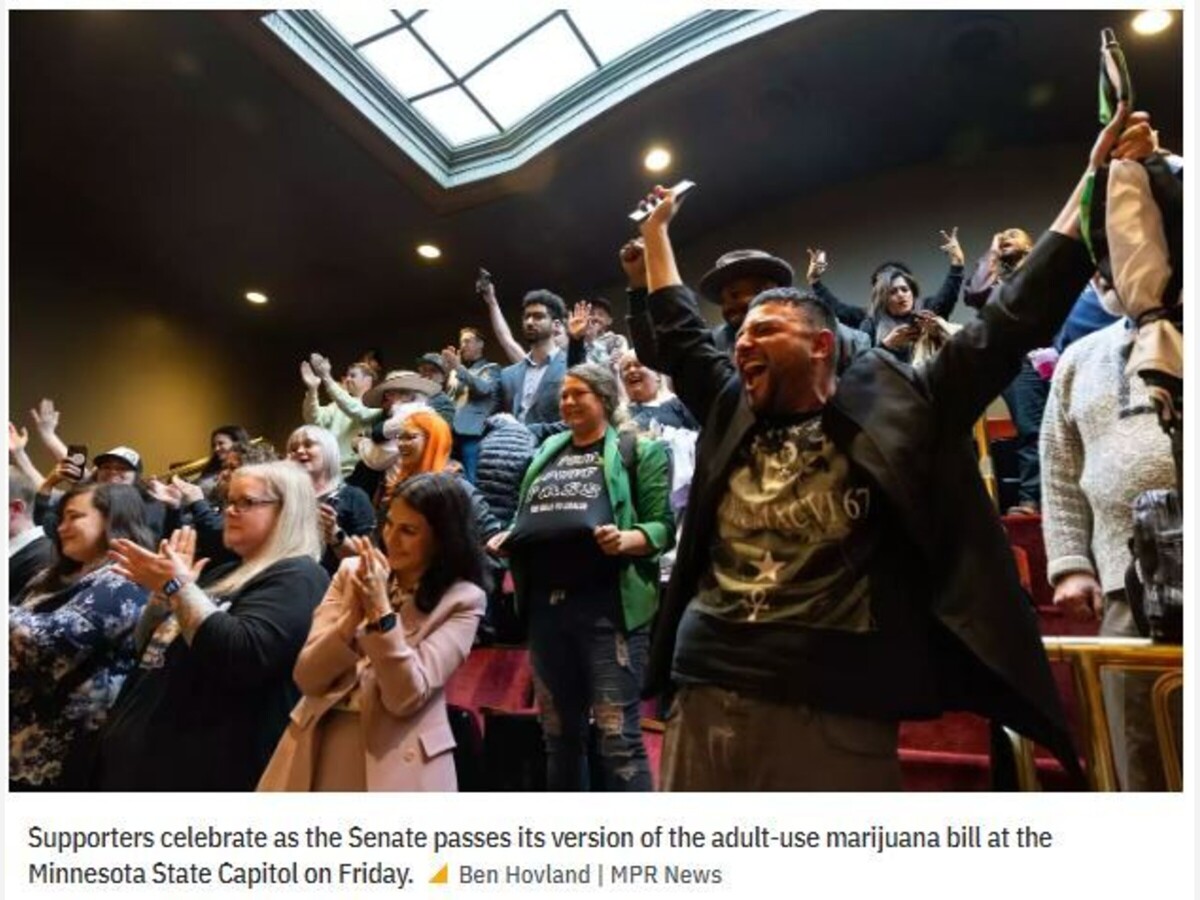

In a major sign of momentum for legalization of adult-use marijuana, the Minnesota Senate approved a bill Friday that sets up a structure for growing and selling cannabis while revisiting convictions for past drug crimes.
The 34-33 party line vote sends the bill into final negotiations with the Minnesota House, which passed a different version on Tuesday. If those talks lead to a merged bill, new votes would be needed to send it to DFL Gov. Tim Walz for his promised signature.
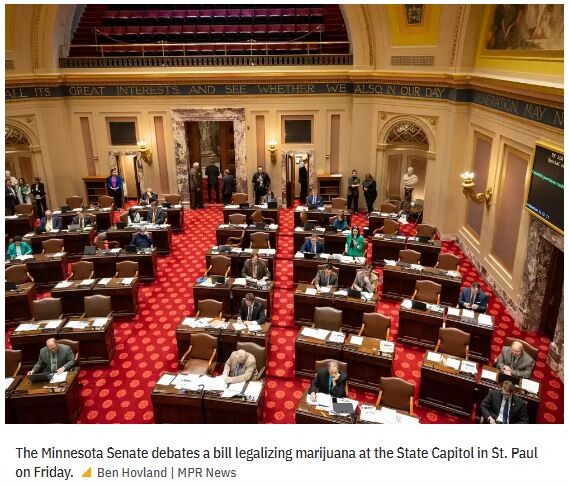
Many DFL senators dressed in green to mark the vote. Lead sponsor Lindsey Port of Burnsville highlighted the extensive review and bill changes that led up to it as well as her belief that a regulated market has an upside.
“Minnesotans are ready. Attitudes are changing,” she said. “Now is our time to undo decades of ineffective and damaging prohibition.”
Sen. Zack Duckworth, R-Lakeville, said the state should move more gradually instead of diving into full-blown legalization.
“There is still plenty of work to be done here,” he said. “This isn't something that we should be rushing to."
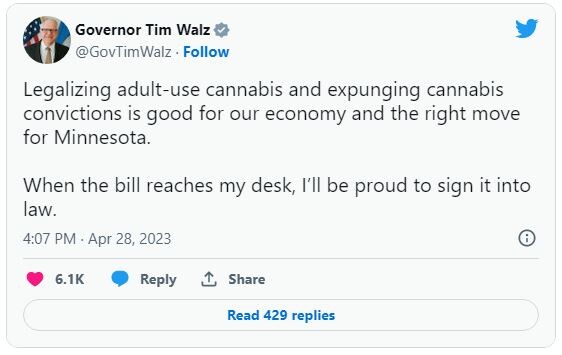
Senate Republicans opposed the bill, saying there are too many unanswered questions. They raised concerns over substance abuse, highway safety and the ability to crack down on illicit sales. They noted that medical groups have sounded alarms over marijuana being a gateway drug or worsening mental health problems.
“What we've come down to after our analysis is this bill simply isn't enough – not enough public safety, not enough or not enough for public health,” said Senate Minority Leader Mark Johnson, R-East Grand Forks. “And our local governments are really, really at the bottom of the stick of this.”
Senators did make some changes before their final vote.
Most notably, they gave cities and counties greater authority to restrict the number of cannabis retailers within their borders to as few as one for the smallest entities. Other restrictions are pegged to population size.
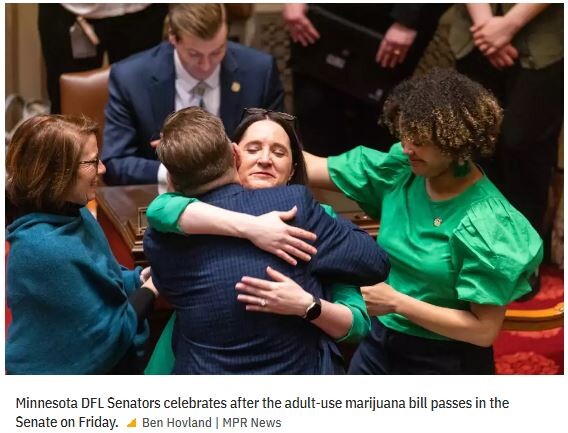
The House bill lacks such a cap, but would give local governments the ability to pass time, place and manner ordinances around sales.
Neither bill would let local officials disallow marijuana entirely.
If approved, marijuana possession, use and purchase by people at least 21 years old would become legal this summer. But it could take well into 2024 before dispensaries are up and running with adequate retail supply.
Supporters say it could take 18 months until there is adequate supply for dispensaries to open.
Ryan Winkler of the MN is Ready coalition, which has been a central player in the bill’s development, said “a few bumps in the road” are inevitable as rules around cultivation, distribution and sales are fleshed out.
“As we've seen in every other marketplace – and I suspect any market where you're creating a new product and there's large consumer demand – it's difficult to match supply and demand initially and there typically is a market shakeout after the initial exuberance happens,” he said. “We're seeing that in other states as well. There's been a lot of consolidation of cannabis companies in other states. So we are anticipating the challenges.”
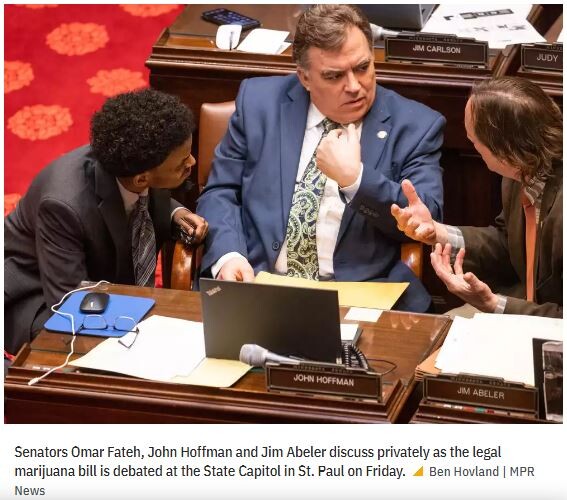
A newly created Office of Cannabis Management would be established to help calibrate supply and demand of marijuana subject to quality controls. But people would also be permitted to grow their own plants at home for personal consumption within limits.
Aside from matters of local control, key differences in the House and Senate versions surround treatment of already legal hemp-derived THC edibles, creams and beverages.
The tax rates also vary. The House imposes an 8 percent tax on cannabis products, allowing for adjustments as the industry matures. The Senate bill sets a 10 percent tax, with directions that a quarter of the money flow to local oversight needs.
The bills also diverge on the speed of expungements of past marijuana offenses. Automatic clearing of records would start much sooner in the House version, with both bills setting up a petition process for people whose convictions are more complicated.
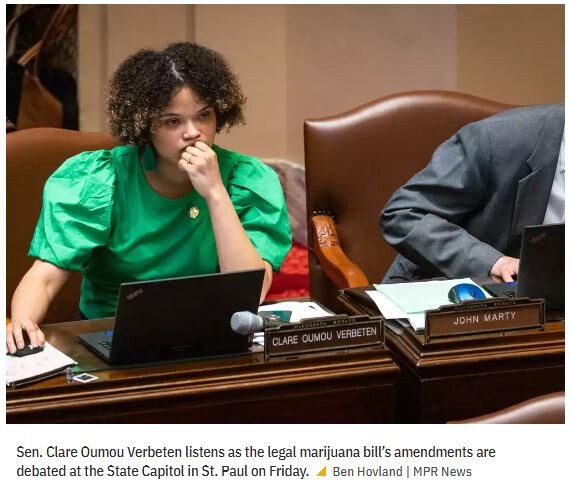
Sen. Claire Oumou Verbeten, DFL-St. Paul, said it’s all part of fixing problems of the past related to inconsistent crackdowns in communities of color and poverty.
“We owe this to the people who have been impacted the most by this prohibition. It's our communities of color. It's Black Minnesotans, especially Black men. We owe this to them. We can legalize this. We can regulate it. We can expunge,” she said. “Because we have to and because it's a racial justice issue.”
MPR News reporter Dana Ferguson contributed to this report.
SOURCE: MPR news